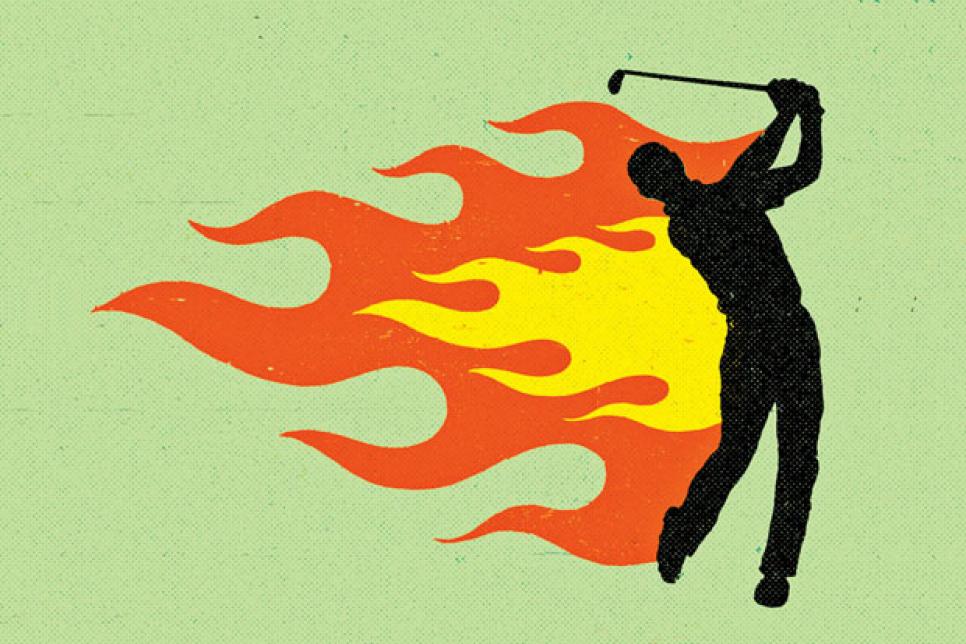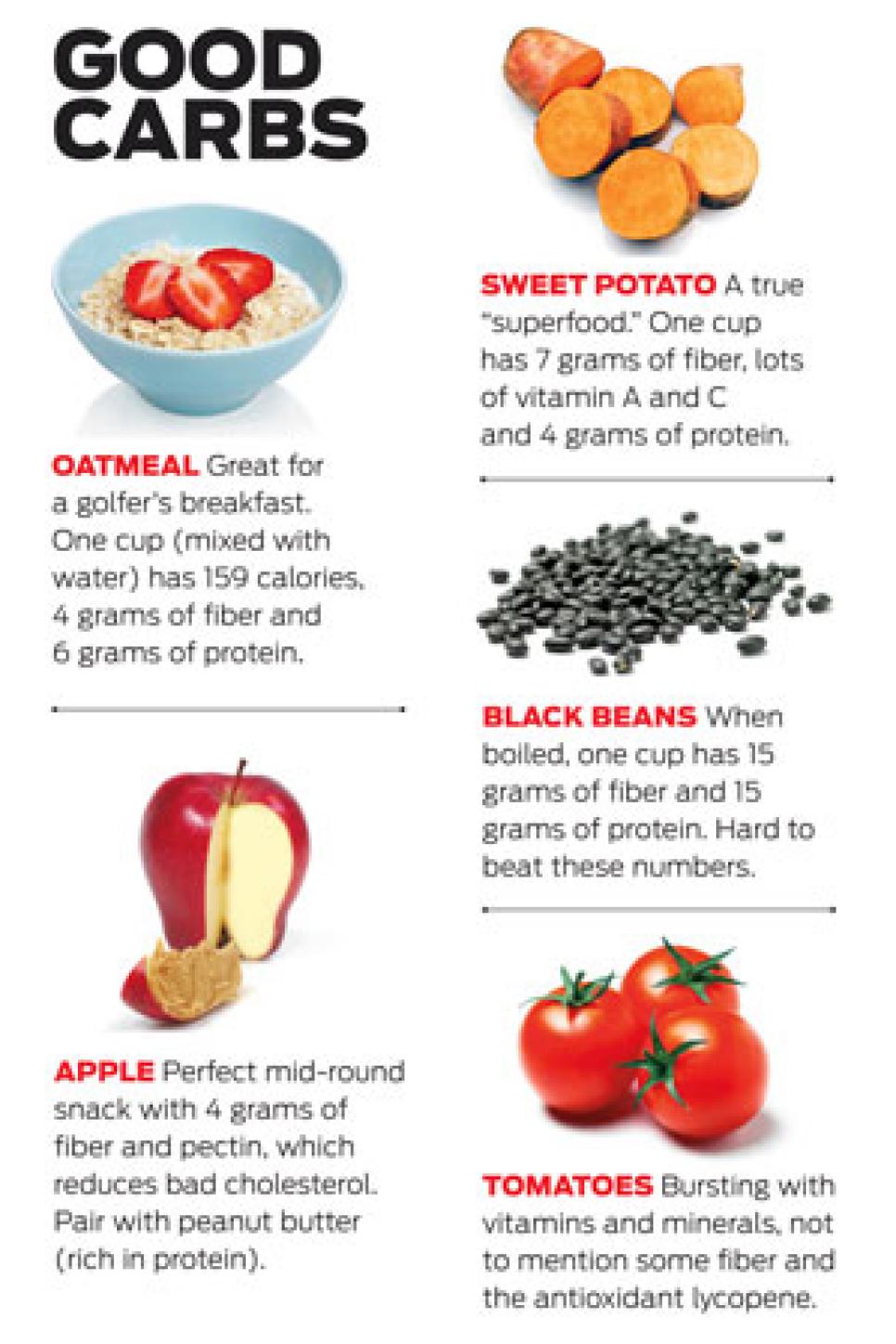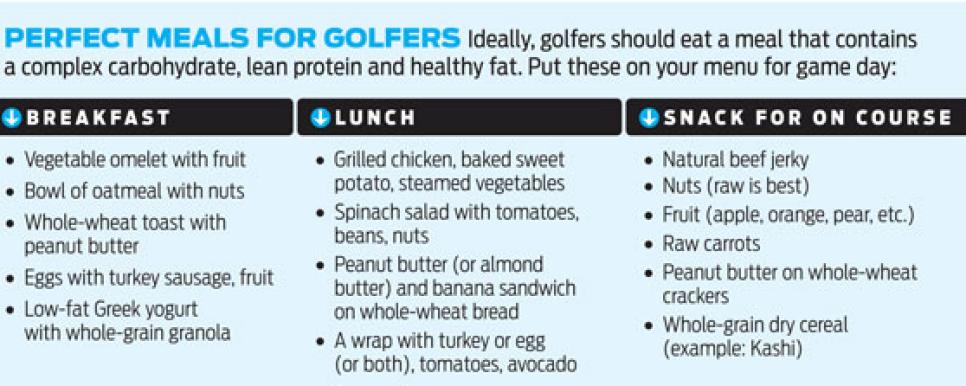Energy Needs

If you're going to play 18 holes, you should be eating carbohydrates. That's the message three sports-nutrition experts made clear when asked about a golfer's diet. In today's weight-loss-conscious world, the word "carbs" definitely has a stigma. But the bad rap mostly comes from a lack of education on what to eat and when to eat it.

"There's a ton of confusion about carbs," says Amanda Carlson-Phillips, a dietitian for Athletes' Performance in Scottsdale. "But they're the primary fuel source for the body."
Nutritionist Robert Yang of the Titleist Performance Institute and dietitian Amy Goodson of Ben Hogan Sports Medicine say carbs not only keep you going during a round, they also help you maintain mental acuity -- assuming you're eating the right ones.
Complex carbohydrates (vegetables, beans and most fruits) are "good carbs," Yang says. They provide energy and prevent blood sugars from rising and falling too fast. These carbs typically contain a significant amount of fiber (three grams or more). The body can't digest fiber, so the process of breaking down a complex carb is slowed, and blood-sugar levels rise at a slow and steady rate. Conversely, simple carbohydrates typically provide an energy spike -- physical and mental -- but then send the body crashing after a shorter period. In golf, where body control and concentration are vital to success, you can imagine why complex carbs are the better choice.
In general, avoid processed foods, especially white-bread products, chips, pretzels, cookies, sugary sports drinks and sodas. "Eat complex carbs in smaller serving sizes throughout the day," Good-son says. "I typically recommend three snacks during an 18-hole round."


